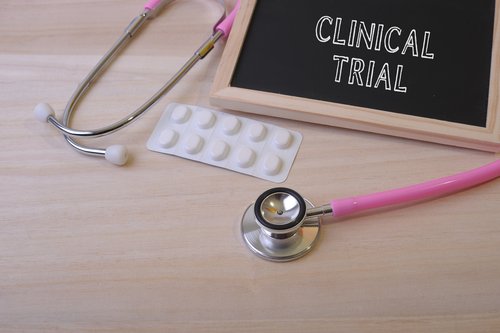Following positive results in a dose–escalation trial with non-Hodgkin’s lymphoma (NHL) patients, a Phase 2 trial will now evaluate a new kinase inhibitor, ASN002, in the treatment of several hematological cancers, including NHL, chronic lymphocytic leukemia (CCL), and myelofibrosis (MF).
ASN002, developed by Asana BioSciences for the treatment of hematological and solid tumors, is a potent inhibitor of two important enzyme families: spleen tyrosine kinase (SYK) and Janus kinases (JAK). These enzymes are key regulators of multiple cellular and signaling mechanisms that are hallmarks of cancer development and progression. This makes them attractive targets for several types of lymphomas, solid tumors, and other disorders.
This therapy effectively inhibited tumor cell proliferation in preclinical cell and mouse models. ASN002 also was effective in inhibiting proliferation in experimental models resistant to the treatment Imbruvica (ibrutinib).
ASN002 is being assessed in a Phase 1/2 study, (NCT02440685), designed to determine the maximum tolerated dose in Phase 1 and to define its clinical activity and safety in Phase 2. Currently enrolling participants, the study is expected to include up to 80 adult patients diagnosed with one of these hematological conditions.
Preliminary Phase 1 results will be presented at the American Society of Clinical Oncology (ASCO) 2017 Annual Meeting, June 2-6, in Chicago. The poster is titled, “Clinical activity, safety and tolerability of ASN002, a dual SYK/JAK inhibitor, in patients with Non-Hodgkin’s Lymphoma (NHL) and solid tumors.”
A total of 28 patients with hematological or solid tumors were enrolled in the Phase 1 part of the trial. All patients received ASN002 at escalating oral doses ranging from 10 mg to 80 mg.
The drug was found to be safe and well tolerated, with no major adverse effects reported that could limit treatment. The most common adverse events were mild to moderate and included headache and fatigue.
Researchers also highlighted encouraging preliminary evidence of effectiveness in one NHL patient. Two months of therapy reduced pruritus, or severe itching, in a patient with peripheral T-cell lymphoma, and the disease’s status was stabilized. These positive results support further developments of ASN002 in the Phase 2 study, researchers said.
“The advancement of ASN002 to Phase 2 clinical trials in less than 3 years from our founding represents a significant milestone for Asana BioSciences and is a testament to the excellence of our development team and investigators,” Sandeep Gupta, PhD, Asana BioSciences’ founder, president and chief executive officer, said in a press release.
“We continue to execute efficiently on our strategy to work on clinically validated targets and develop drugs that are designed to be differentiated from the competition,” he added.


